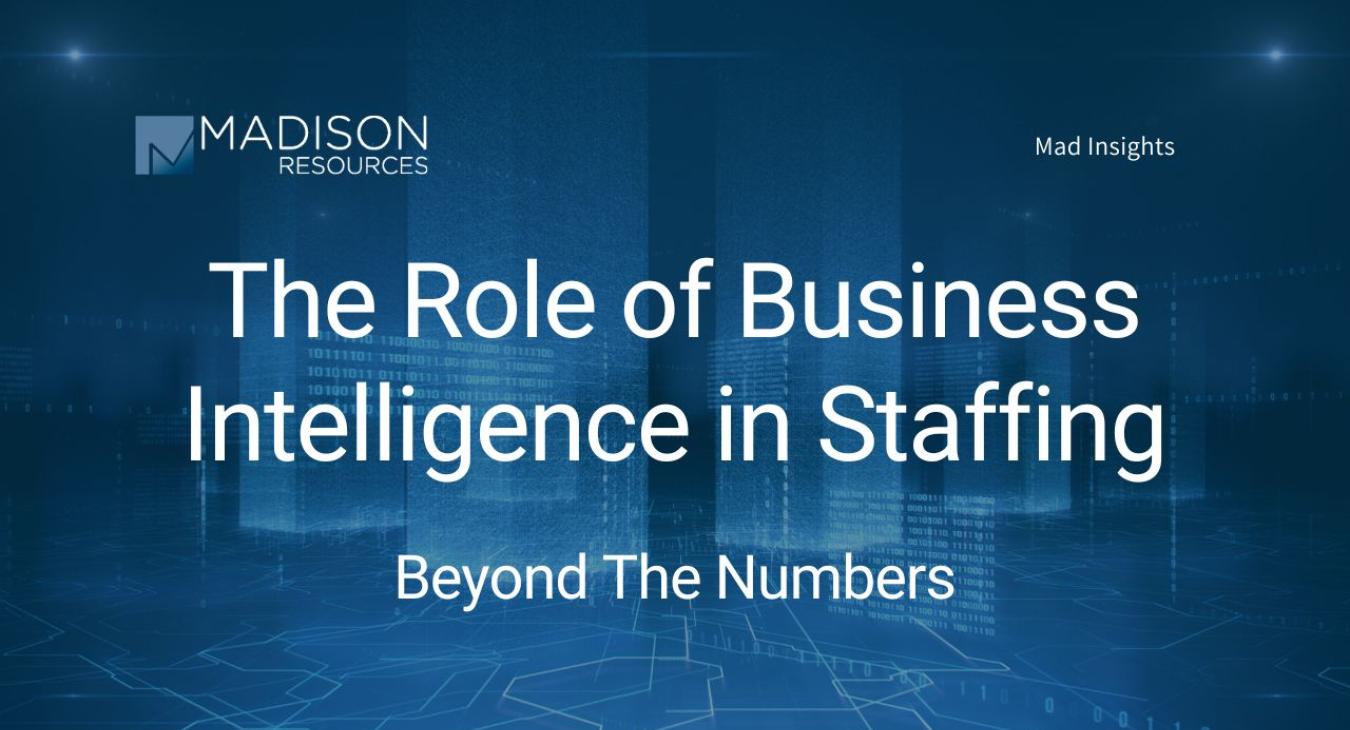Beyond Numbers: Business Intelligence Strategies for Staffing Companies
Harnessing Data for Success: The Role of Business Intelligence in Staffing
In today's competitive landscape, measuring performance and benchmarking against competitors are crucial steps for staffing firms aiming for growth. Leveraging business intelligence tools allows you to gain valuable insights into your sales trends, profit margins, and overall business performance, providing a solid foundation for strategic decision-making. Once armed with actionable insights, executing strategies effectively becomes paramount, whether it's optimizing your sales team or refining your customer acquisition process. By aligning your sales metrics with your corporate goals, you can drive performance across the organization and achieve sustainable growth in the staffing industry.
Measuring Performance
Understanding your current performance is the first step towards growth. According to the American Staffing Association, the staffing, recruiting, and workforce solutions industry provides job opportunities for about 16 million employees annually. Pre-pandemic, there were approximately 25,000 staffing and recruiting companies operating around 49,000 offices in the U.S. Leveraging business intelligence tools allows you to measure your sales trends, profit margins, and overall business performance. For instance, insights into sales gross profit, gross margin, markup percentage, and headcounts enable you to track your progress effectively. (Source: American Staffing Association)
Benchmarking Against Competitors
Once you have measured your performance, it's essential to compare it with industry benchmarks to gain valuable insights. The Average Fill Rate, Submittal-to-Hire Ratio, and Average Time-to-Fill Ratio are crucial metrics to consider when evaluating staffing agencies. According to Raise Recruiting, the average time-to-fill ratio for temporary jobs is around six days, while contract jobs take about eight days. Permanent jobs, requiring a perfect fit, have an average time-to-fill ratio of 32 days. Business intelligence solutions offer benchmarking capabilities, allowing you to assess your performance against industry standards and identify areas for improvement. (Source: Raise Recruiting)
Executing Strategies
Armed with actionable insights from business intelligence tools, it's time to execute your strategies effectively. Whether it's optimizing your sales team, refining your customer acquisition process, or streamlining your sales pipeline, data-driven decision-making is key to success. By aligning your sales metrics with your corporate goals, you can ensure that every decision contributes to your overarching objectives. Communicating these insights to your team fosters a culture of transparency and accountability, driving performance across the organization.
Final Thoughts
In conclusion, business intelligence tools are indispensable for staffing firms looking to thrive in a competitive market. By leveraging data-driven insights, benchmarking against industry standards, and executing strategies effectively, staffing companies can unlock their full potential and achieve sustainable growth. Contact us today to learn more about how business intelligence solutions can empower your business to succeed.
Ready to dive deeper into the staffing industry? Explore our industry insights hub for invaluable knowledge and trends. Click here to gain access!
- Log in to post comments


